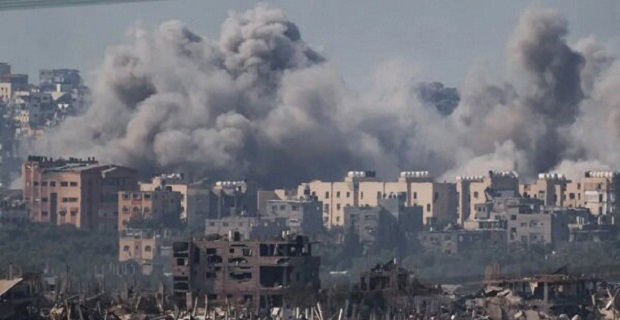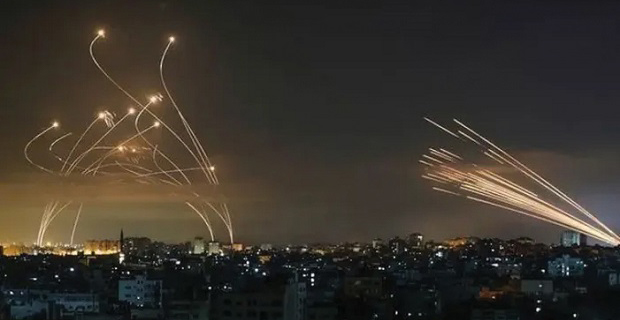A New Cold War With A Difference

The Sunni Islamic radical outfit Jaish Al Adl based in Baluchistan intruded into the adjoining Sistan area of Iran whereupon Iran fired missiles on the outfit’s base in Balochistan -- inviting in return, a retaliatory military strike from Pakistan that seemed somewhat symbolic.
In the background of the Israel-Hamas conflict, Iran was getting politically drawn to the China-Russia combine -- it had already extended military help to Russia by way of supplying drones to the latter during the Ukraine-Russia ‘war’. Pakistan, on its part, has historically been opposed to the creation of a Zionist state and maintains no diplomatic relations with Israel even today.
Pakistan has a strong strategic alliance with China but has managed to be on the right side of the US after playing the role of a mediator in the talks between the Taliban and the US at Doha that resulted in the withdrawal of American troops from Afghanistan and the reinstallation of the Taliban Emirate at Kabul in 2021.
Pakistan is also a key member of the Organisation of Islamic Conference (OIC) and has been extremely close to Saudi Arabia, the Chairman of this block of 57 Islamic countries. Sunni radicals consider the US and the Shiites as their enemies and would abhor the idea of Pakistan getting close to the US. Pakistan, however, has struck an equation with radical outfits like the Taliban, Al Qaeda and the Islamic State of Iraq and Syria (ISIS) which are inimical to the US, Saudi Arabia and the Ayatollah regime of Iran, alike.
For Iran, friendship with Pakistan is strategically gainful for maintaining its hold in the Middle East against its main rival Israel -- it is aware that left to itself Pakistan did not harbor any faith-based antipathy towards Iran. The three-day visit of Iranian President Ebrahim Raisi to Islamabad from April 22 in the context of the Israel-Hamas conflict -- particularly after the exchange of missile attacks between Iran and Israel -- is of great significance not only for the Middle East but also for the wider geopolitics that is marked by a clear drift towards a new Cold War between the US-led West and the China-Russia axis.
It is interesting how this political polarization at the global level is getting bolstered by the religion-based alignments within the Muslim world in general and the Middle East in particular. The Iranian President clearly wanted Pakistan’s support in its confrontation with Israel even as both Iran and Pakistan were aware of the US opposition to any trade pacts between them.
The prolonged military action of Israel in Gaza has revived the fundamental antagonism between the Zionist state and Islamic Palestine. The anti-US character of Shia fundamentalism and the pro-Assad stand of Iran in Syria have pushed Iran closer to Russia and China.
It is interesting, however, that radicalization in the Islamic world is a cause for concern for both the US and Russia. The US hopefully would have learnt the lesson that for political convenience in the past -- in the context of the American banking on Pakistan for dealing with post-Soviet Afghanistan -- it had made a strange attempt to draw a distinction between ‘good terrorists’ and ‘bad terrorists’ which had only added to the threat of faith-based terror from radicalized forces facing the world.











Comments.